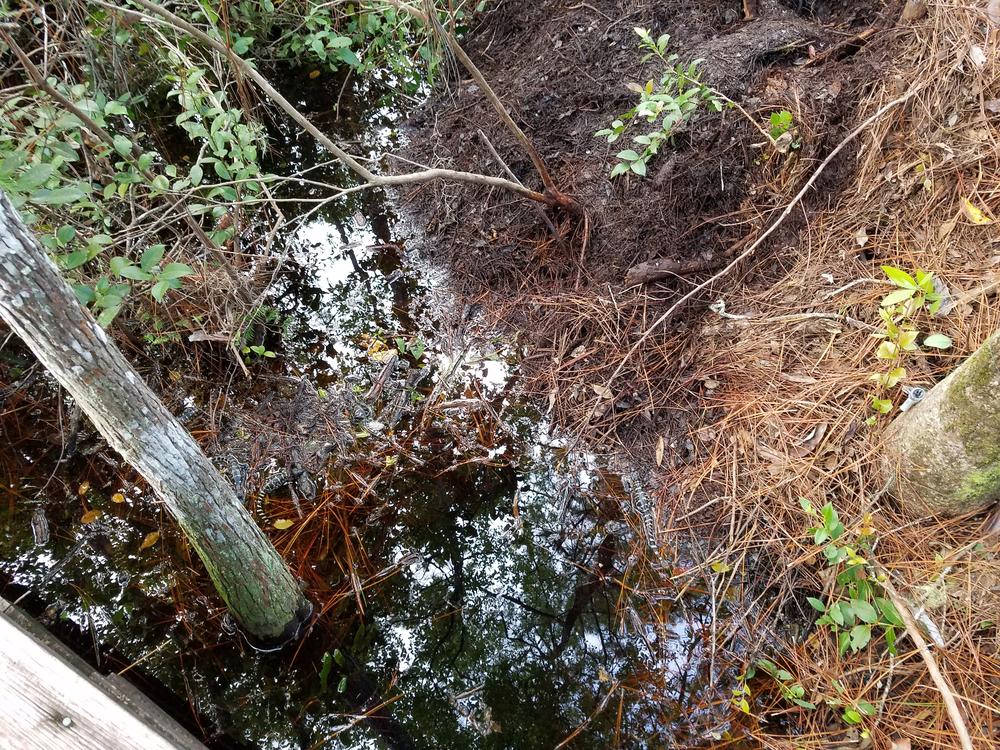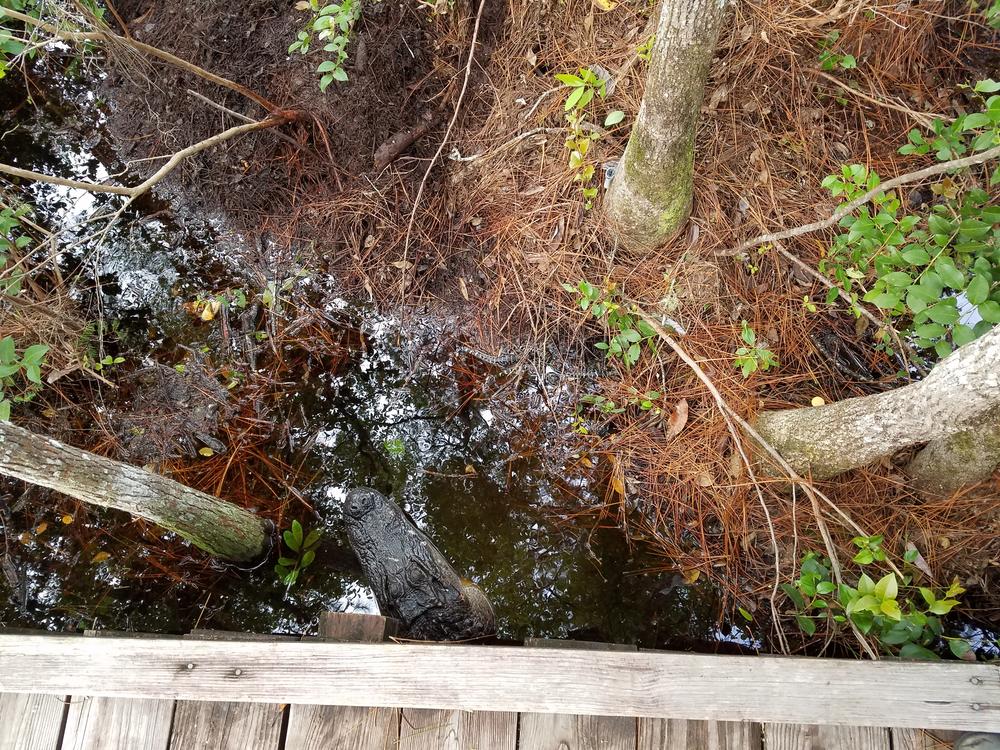Section Branding
Header Content
Alligators Tweet, Wear Trackers To Help People Learn
Primary Content
It’s not hard to meet a gator in Georgia. Waterways in South Georgia are full of them. But there’s a lot we don’t know about these big reptiles. GPB’s Emily Jones went to the Okefenokee Swamp to meet the researchers and alligators hoping to change that.Researchers are tracking alligators to learn more about them.
On an August morning, Kristen Zemaitis from UGA stood in the bow of a small boat, holding an antenna high over her head. It was connected to a small device that looks sort of like a walkie talkie, emitting static sounds and the occasional faint beep. Zemaitis was listening for a signal from a tracker attached to an alligator named Cypress.
“It’s essentially just like listening to your favorite radio station,” she said. “I’m listening to my favorite alligator.”
There was not much to hear from Cypress, who can be tough to find. She managed to pick up the gator’s signal but never actually see her.
That’s one reason the satellite trackers are so important: Zemaitis can keep tabs on the gators even when she can’t see them, and monitor what they’re up to when she’s not in the swamp. She hopes all the data will offer some answers.
“There’s just so much that we don’t actually understand about them.” Zemaitis said.
People hunted alligators nearly to extinction, then saved them with an Endangered Species Act listing. They’re now abundant in the southeast, and people have gotten familiar with how they act. But:
“We have hypotheses. We think we understand kind of what’s going on,” said Zemaitis. “But scientifically we need to look into it a little bit more and figure out, ok. We know this happens, but why is it happening?”
It’s not just scientists who want these answers. Okefenokee Swamp Park is helping fund the research. The park’s boat guides spend their days on the water, talking with visitors.
The gators are speaking up for themselves, too, in a way. Cypress and fellow tagged alligators Sally and Audrey Laine are all on Twitter.
Hello World, I have arrived! I am the 3rd American #alligator to be fitted with a #SatelliteTag in the @OkeSwampPark thanks to researchers @UGAEcology! Stay tuned for more updates and I join the @OCEARCH tracker later this week! Here I am guarding my nest. Don't come too close! pic.twitter.com/doCZlZHaxG— Sally the Alligator (@GatorSassySally) August 27, 2018
“The gators now have a voice to talk to people about their lives” said OCEARCH founder Chris Fischer. “When they’re nesting, when their babies are born, how they move. Why are gators important?”
His organization has made a splash with its online tracking of sharks, many of whom have Twitter accounts. Fischer says with big predators, this approach can help people move from “fear to fascination.”
“They realize oh my gosh, if we don’t have an ocean full of giant sharks, we’re in big trouble,” he said. “Oh my gosh, if the swamp doesn’t have a healthy population of large gators, this whole ecosystem is in trouble.”
Okefenokee alligator Sally is doing her bit to keep the population strong with a nest full of eggs. This one is easy for Zemaitis to check on: it’s right next to a wooden walkway through the swamp. Walking along that trail, Zemaitis stopped in her tracks.
“Oh yes! Her nest hatched! Her nest hatched!” she said, surprised and excited. She thought this was a few weeks away. “Those are all of her babies.”
Itty bitty alligators, black with yellow stripes, are just visible in the black water. They make faint chirping sounds, similar to baby birds or puppies.
“I need to see how many babies there are, so I’m just gonna try and count,” Zemaitis said, crouching near the edge of the walkway.
Suddenly, from below: a hiss.
Zemaitis stood quickly and stepped back. Mama gator Sally was lurking under the boardwalk, making sure the humans didn’t mess with her kids.
“Alligators are one of the best moms, in my opinion,” Zemaitis said. “She stayed right here. She hissed at everyone who came on the boardwalk” while her eggs were incubating.
Now that the eggs have hatched, she’ll keep protecting her babies until they can fend for themselves. Zemaitis, meanwhile, hopes to take genetic samples from the babies’ tails so she can learn even more about them as they grow up.




